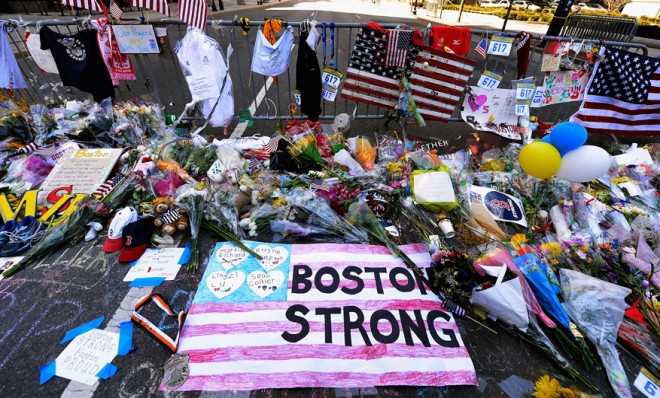4 lessons from the Boston Marathon bombings
In some ways, the U.S. government and the mainstream media did a great job — but they must do better

A free daily email with the biggest news stories of the day – and the best features from TheWeek.com
You are now subscribed
Your newsletter sign-up was successful
1. Al Qaeda is not the only threat
James R. Clapper, the director of national intelligence, told the House Intelligence Committee the week before the Boston bombings: "The threat from al Qaeda and the potential for a massive coordinated attack on the United States may be diminished, but the jihadist movement is more diffuse... Lone wolves, domestic extremists, and jihad-inspired affiliated groups are still determined to attack Western interests."
The suspected Boston bombers turned out to be of Chechen descent. Chechen terrorists have perpetrated terrible attacks on the Russian mainland in recent years, including a 2004 school massacre that left hundreds of children dead. If you look at the timeline, the question lingers as to when Boston suspect Tamerlan Tsarnaev, 26, was radicalized. Was it during his 2012 trip to Russia, or by someone in the U.S.? Regardless, we don't know what the Boston suspects' motives were, or what cause they were fighting for. We do seem to know this, though: The Boston attack was not perpetrated by al Qaeda. It's a reminder that the list of terrorist groups is long — and many of them are domestic.
The Week
Escape your echo chamber. Get the facts behind the news, plus analysis from multiple perspectives.

Sign up for The Week's Free Newsletters
From our morning news briefing to a weekly Good News Newsletter, get the best of The Week delivered directly to your inbox.
From our morning news briefing to a weekly Good News Newsletter, get the best of The Week delivered directly to your inbox.
2. The FBI and foreign governments must do better
Reports say Russian intelligence told the FBI that Tamerlan was a follower of radical Islam, and the FBI questioned him. Some say the FBI dropped the ball, and didn't even know about a 2011 trip abroad because Tamerlan's name was misspelled. Others argue that Russia should have done more, too. Both the Clinton and Bush administrations have been criticized for not connecting the dots leading up to 9/11, and now the Obama administration must confront similar criticism over the Boston bombings.
3. You are being watched — and it's hard to hide
Perhaps the most stunning aspect of the Boston Marathon bombing saga was how quickly today's technology allowed law enforcement to assemble an array of videos and photos. Surveillance cameras are everywhere. Digital cameras are in all of our pockets. Thermal imaging helped a helicopter find and capture the final suspect. In America in 2013, you can run, but you can't hide.
A free daily email with the biggest news stories of the day – and the best features from TheWeek.com
4. The mainstream media must do better
Although NBC's Pete Williams was widely praised for what The Atlantic Wire called "clear, careful, accurate reporting in a sea of media confusion," CNN and the New York Post came under substantial criticism for mistakes made during their bombing coverage. CNN — which bills itself as the most trusted name in news — inaccurately reported on the air Wednesday that a suspect had been arrested. (Watch Jon Stewart's takedown of CNN's coverage here.) But the worst offense came in the form of media baron Rupert Murdoch defending the Post's screaming front page that wrongly tagged two innocent men as suspects.
Despite some factually incorrect and, at times, seemingly intentionally fake tweets, Twitter was way ahead of the TV networks, and was the way to follow the dramatic shootouts and the two suspects' respective falls. On CNN, Mediaite columnist Joe Concha declared "there are now six news networks... CBS, NBC, ABC, CNN, Fox, and Twitter."
Joe Gandelman is a syndicated columnist for Cagle Cartoons and is the editor of The Moderate Voice blog.
-
 Local elections 2026: where are they and who is expected to win?
Local elections 2026: where are they and who is expected to win?The Explainer Labour is braced for heavy losses and U-turn on postponing some council elections hasn’t helped the party’s prospects
-
 6 of the world’s most accessible destinations
6 of the world’s most accessible destinationsThe Week Recommends Experience all of Berlin, Singapore and Sydney
-
 How the FCC’s ‘equal time’ rule works
How the FCC’s ‘equal time’ rule worksIn the Spotlight The law is at the heart of the Colbert-CBS conflict